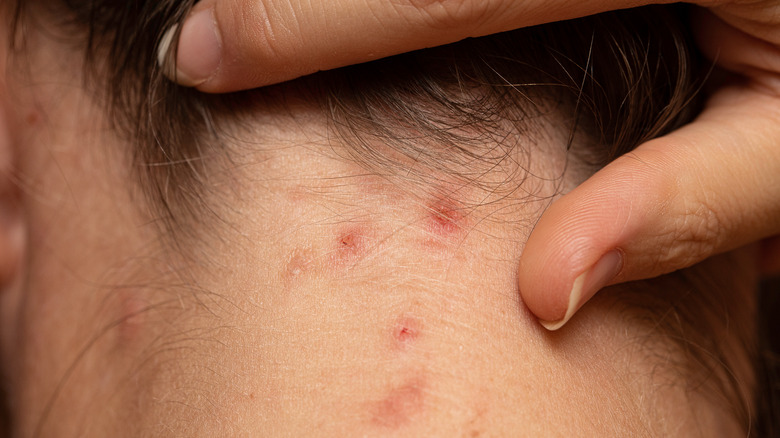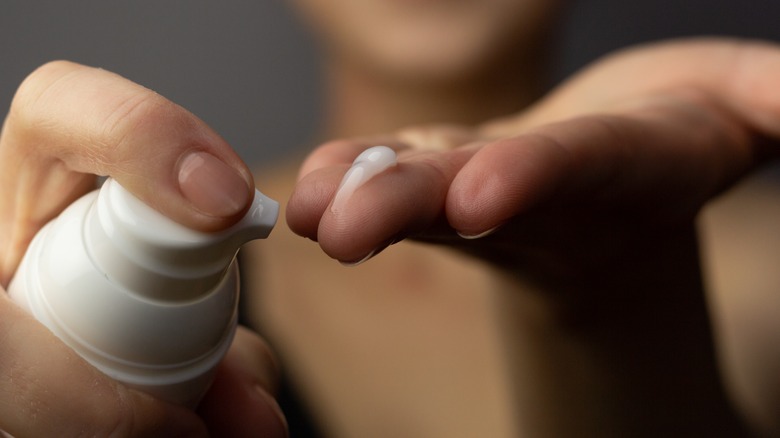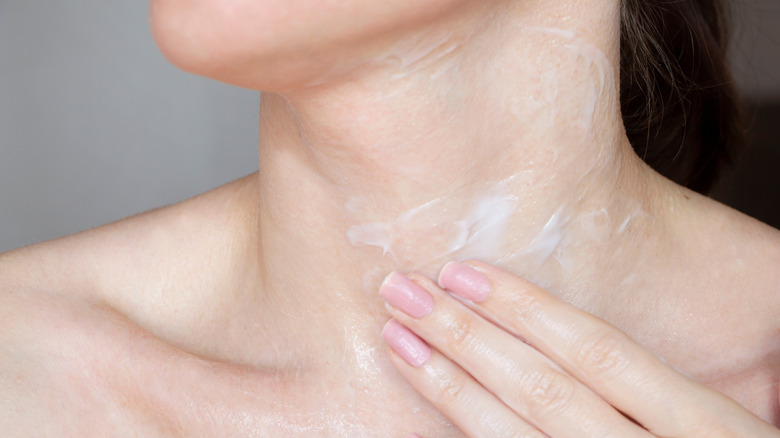How To Treat Acne On The Back Of Your Neck
Acne can be a heavy burden for the body and soul. This is particularly the case with the very severe progressive forms. When on the face, it can be stressful and affect your self-esteem. Acne can also form on the back of the neck and usually occurs where there are a particularly large number of sebaceous glands — on the face, chest, and back (via Medical News Today). Although acne on the neck may not be as visible as on the face, it can be just as uncomfortable and painful when it occurs regularly and even becomes infected.
According to Healthline, acne has various causes and can affect teenagers and adults. Medical News Today also notes that acne usually occurs during puberty in teenagers. As the body develops into an adult, the increasing levels of hormones (known as androgens) can enlarge the sebaceous oil glands under the skin, producing more sebum. Sebum moisturizes and protects the (via Healthline). However, excessive sebum can cause bacteria to grow due to a breakdown of cellular walls, per Medical News Today. Stress, genetics, weight, and drug intake also influence the development of acne in adults (via WebMD). Women can also experience adult acne more during menstruation, per Healthline.
Treatment options for acne on the neck
When a pimple appears on your neck, you might be tempted to pop it, which isn't a good idea. In the worst case, the infection can spread further and cause new painful pimples, according to Healthline. There are better, more effective ways to treat acne. In the case of severe acne, you should consult a dermatologist. They might offer more personalized treatment that can be oral or topical, containing antibacterial or regenerating ingredients.
One recommended treatment option is salicylic acid. It can normalize the skin's cell renewal process and reduce excess sebum production, per Healthline. Benzoyl peroxide is another treatment option that helps to counteract the bacterial infection so that pimples on the neck heal quickly, explains Medical News Today.
Other treatment options include vitamin A derivatives (such as retinoids) (via Healthline). Severe cases of nodular acne are sometimes treated with Accutane, which can cause serious side effects. The concentration of the active ingredient and the dosage of all treatments depend on the severity of the acne and should be determined by a medical professional. After starting any treatment, you should also contact your doctor or dermatologist immediately if you experience itching or rash.
Other preventative measures
According to WebMD, regular showers are essential to remove sebum and dead skin cells, especially if your skin is prone to impurities and pimples. It's also important to use the correct cleansers and moisturizers. Ask your dermatologist about which skincare products will work best to keep your neck area free of acne long-term. In addition, they might recommend a daily cleansing routine.
Some dermatologists might also advise not to wear makeup when suffering from acne. However, concealing blemishes can be important for many people, as it helps them feel attractive and confident, despite an uneven complexion. For this purpose, Healthline recommends using non-comedogenic makeup, which is less likely to clog your pores. Still, asking your dermatologist about the best makeup for acne-prone skin is important.
Your hairstyle and styling products might also contribute to clogged pores, per Healthline. So avoiding oily hair products and pomades might be a good idea. They also recommend cutting bangs shorter to prevent oil in the hair from leaking onto the forehead and clogging the pores.



